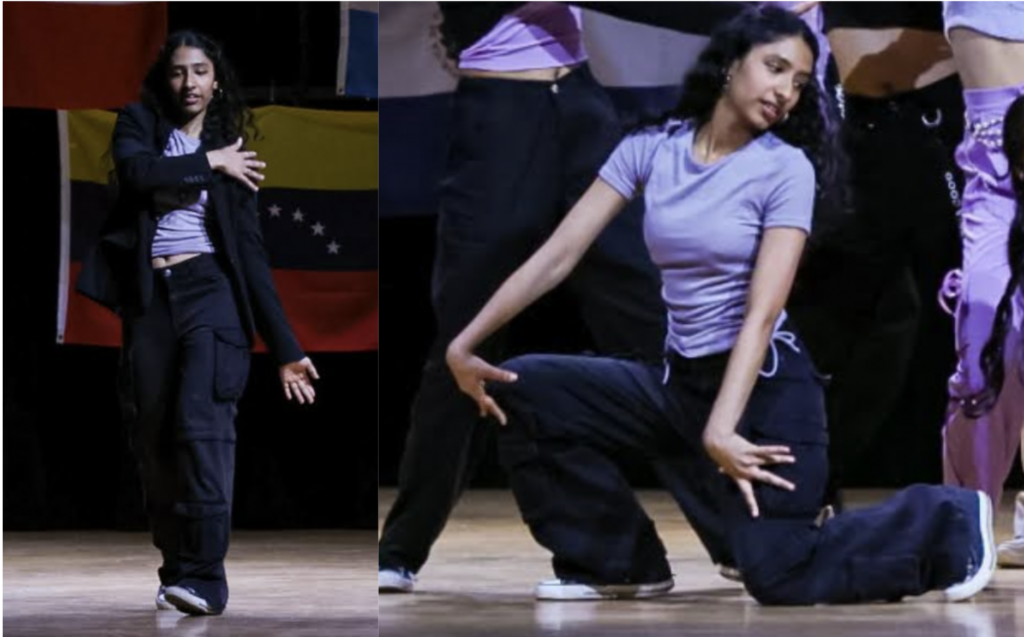My hands trembled as I flipped through my sheet music. “Start whenever you’re ready,” one of the judges said. Taking a deep breath, I placed my bow on the strings and began to play — only to feel my arms familiarly locking up as the notes slipped from my fingers. Playing the violin never came easy to me, and I repeatedly failed auditions due to my deep-rooted lack of confidence. This self-doubt was present in all aspects of my life, but was the most evident through my music performances. I debated giving up for months, but ultimately realized my lack of confidence was something I wanted to overcome, and funny enough, music was what helped me accomplish that. And it wasn’t just violin; all types of music have had a significant impact on my growth as a teenager by helping me de-stress, learn more about myself, and gain confidence.

Dance, for example, has taught me how to express myself. Whenever I’m feeling down after a rough day, I often find myself turning on upbeat music and dancing around in my room. Without fail, these spontaneous dance parties cheer me up immediately. It turns out, research supports this. Dancing has significant physiological and psychological benefits, including reducing anxiety and stress. Dancing creates a real, deeper connection between the mind and body, which can be incredibly healing. For me, I’ve also noticed my confidence build through dancing, which has then translated to other forms of self-expression, such as public speaking, advocacy, and socializing. However, dance isn’t just about personal growth, it’s also about finding community. Being a part of my school’s K-pop dance team, I feel truly connected with my fellow members while practicing and performing. Dancing with others fosters joy and creates a shared cultural experience, bringing people closer together.
Singing and listening to music has also been transformative. I remember countless moments of belting out my favorite songs during car rides where the rhythm seemed to lift the weight of the world off my shoulders. Music is woven into my everyday life, and it helps me push through the stresses of high school, which for many teens like me, is an overwhelming part of our daily experience. Studies have shown that music can significantly reduce stress levels, offering a much-needed escape and sense of relief. Both singing and listening to music broadly enhance mental well-being. When I express myself through song, it helps me let go of negative emotions and feelings I am holding onto.
Although all forms of music have shaped me, I accredit my newfound confidence to the violin. Through relentless practice and perseverance, I have grown to love playing in front of others and performing with far fewer doubts. Additionally, violin has improved my focus and mental discipline, as performance requires long periods of concentration, which have strengthened my ability to focus on something for an extended period of time. Research even links playing an instrument to improved cognitive health — a benefit I’ve seen firsthand.
Music is integrated into every aspect of my life, and has helped me not only relieve stress but also grow as a person. To any young person reading this, I urge you to explore how music can serve you. Whether it’s singing, dancing, performing, or simply listening, music has the power to uplift, heal, and transform in ways that are unique to each individual. It’s a tool for growth and self-discovery—one I hope more people embrace and harness.





















